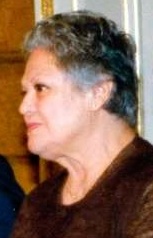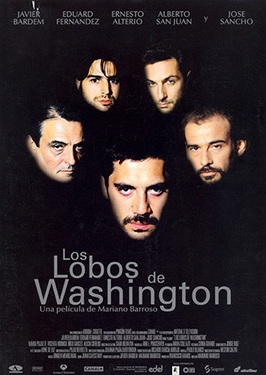Related Research Articles

The art of motion-picture making within Spain or by Spanish filmmakers abroad is collectively known as Spanish Cinema.

Juan Antonio Bardem Muñoz was a Spanish film director and screenwriter, born in Madrid. He was a member of the Communist Party. Bardem was best known for Muerte de un ciclista (1955) which won the FIPRESCI Prize at the 1955 Cannes Film Festival, and El puente (1977) which won the Golden Prize at the 10th Moscow International Film Festival. His 1979 film Seven Days in January won the Golden Prize at the 11th Moscow International Film Festival. In 1981 he was a member of the jury at the 12th Moscow International Film Festival. In 1993 he was a member of the jury at the 43rd Berlin International Film Festival. In 1953 he and Luis García Berlanga founded a film magazine, Objetivo, which existed until 1956. Bardem was the father of director Miguel Bardem and uncle of actor Javier Bardem. Bardem died in Madrid in 2002, at age 80.

José Antonio Nieves Conde was a Spanish film maker, journalist, and screenplay writer, the director of feature films such as Surcos [Furrows] (1951), Angustia [Anguish] (1947), and Balarrasa [Reckless] (1950).

Manuela Ruiz Penella, better known as Emma Penella, was a Spanish film and television actress.
Main Street is a 1956 Spanish drama film directed by Juan Antonio Bardem starring Betsy Blair and José Suárez. It is based on a Carlos Arniches play titled La señorita de Trévelez. Shooting locations were Palencia, Cuenca and Logroño. The film won the FIPRESCI Award at the Venice Film Festival. It was also selected as the Spanish entry for the Best Foreign Language Film at the 30th Academy Awards, but was not accepted as a nominee.
My Street is a 1960 Spanish drama film written and directed by Edgar Neville.

José Suárez was a Spanish film actor.

The Red Fish is a 1955 Spanish thriller film directed by José Antonio Nieves Conde and written by Carlos Blanco with original idea by Carlos Blanco.
Vicente Parra Collado was a Spanish actor.
The 17th annual Venice International Film Festival was held from 28 August to 9 September 1956. No Golden Lion was given because there was a tie between The Burmese Harp (Japan) and Calle Mayor (Spain). The international jury was unable to decide the winner and the award was declared void.

The Lady from Trévelez is a play by the Spanish writer Carlos Arniches which was first performed in 1916.
The Party Goes On is a 1948 Spanish drama film directed by Enrique Gómez and starring Antonio Casal, María Isbert and Juan Vázquez. It is set in the world of bullfighting

We're All Necessary is a 1956 Italian-Spanish drama film directed by José Antonio Nieves Conde, starring Alberto Closas, Folco Lulli, Lída Baarová and Ferdinand Anton. It tells the story of three men who are released from prison and have doubts and regrets regarding their place in society. The film was a co-production with an Italian company. It competed in the Spanish section at the 1956 San Sebastián International Film Festival, where it won the awards for Best Film, Best Director, Best Screenplay and Best Actor (Closas).

Variety is a 1971 Spanish drama film directed by Juan Antonio Bardem and starring Sara Montiel, Vicente Parra and Chris Avram.

Anguish is a 1947 Spanish crime film directed by José Antonio Nieves Conde and starring Rafael Bardem, Julia Caba Alba and María Francés.
Devil's Roundup is a 1952 Spanish drama film directed by Antonio del Amo, Enrique Gómez, Edgar Neville, José Antonio Nieves Conde and Arturo Ruiz Castillo.

Miracle of the White Suit is a 1956 Italian-Spanish drama film directed by Rafael Gil and starring Miguel Gil, Miguel Ángel Rodríguez and Julia Martínez.
Film Ideal was a biweekly Spanish film magazine, which was published between 1956 and 1970. The magazine was based in Madrid, Spain.
Objetivo was a film magazine published between 1953 and 1955 in Madrid, Spain. The magazine was one of the significant publications, which contributed to the struggle for a censorship-free cinema in Francoist Spain. Spanish author Marvin D'Lugo argues that the magazine was very influential during its lifetime despite its short existence and lower levels of circulation.

Washington Wolves is a 1999 Spanish thriller film directed by Mariano Barroso and written by Juan Cavestany which stars Javier Bardem, Eduard Fernández, Ernesto Alterio, Alberto San Juan and José Sancho.
References
- ↑ Mira p.250
- ↑ Lázaro‐Reboll, Antonio; Marsh, Steven; Martin‐Márquez, Susan; Zunzunegui, Santos (2012). "Strategic Auteurism". A Companion to Spanish Cinema. pp. 152–189. doi:10.1002/9781118322765.ch6. ISBN 978-1-4051-9438-9.